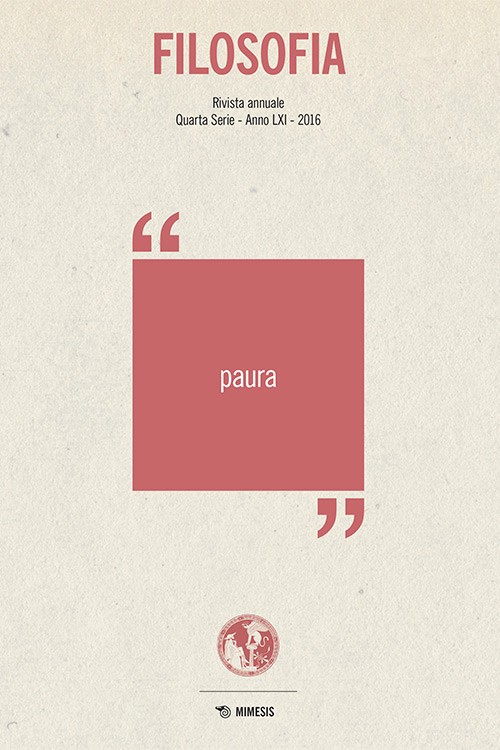Euristica della paura e vincolo dell’incertezza. Riflessioni su Jonas e Hobbes
DOI:
https://doi.org/10.13135/2704-8195/3920Parole chiave:
Jonas, Hobbes, heuristic of fear, responsibility, uncertaintyAbstract
This essay aims at clarifying the concept of Jonas’s heuristic of fear. In spite of severe criticism, fear remains a little-explored aspect of his thought, especially as far as the role it plays in the elaboration of the imperative of responsibility. Jonas elaborates a new concept of fear, molded by the particular form of uncertainty brought about by the technological age. Although critics have interpreted Jonas’ attempt as an ethics founded on irrationality and emotion, the present analysis shows that Jonas affirms a cognitivist theory of fear. The concept of fear he discusses in The Imperative of Responsibility is not an emotion as an immediate physical and psychological reaction, but a form of evaluative thinking, which is part of responsibility. In order to illustrate form and function of fear in Jonas thought, I will refer to the meanings of fear in Hobbes, an author Jonas himself refers to.
Downloads
##submission.downloads##
Come citare
Fascicolo
Sezione
Licenza
Filosofia applica una licenza Creative Commons Attribution 4.0 International License a tutto il materiale pubblicato.



